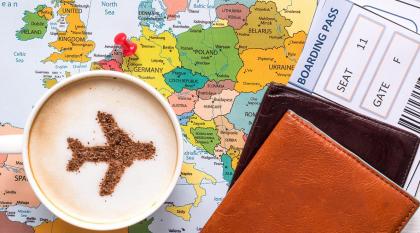How to get a student visa and when you need one
How to get a student visa is a question that every student will ask at some point when planning to study abroad.
Unfortunately, every country has different rules for when you need a visa and what you need to do in order to get one. All of our school locations have different rules and the level of paperwork needed can vary depending on the length of course.
If you are going for a long term English course abroad for example, you are likely to need to go through a more lengthy application process than a course that lasts for a couple of weeks.
We cannot get you through the visa process ourselves, but we can give you an idea of what to expect. Here are some general things you will probably need to consider.
1) Give it all plenty of time
The best piece of advice anyone can give you is to start your application as early as you can. Government-related paperwork can take longer than you expect and you don’t want to be getting stressed because you don't have quite enough time to get everything completed.
With a long term course, you’re going to want to be planning several things far in advance anyway, but make the visa application the first thing on your list. In some cases you want to give yourself at least six months to get through the approval process.
2 ) Find out what agreements there are between your country and your destination
If you are an EU resident and you’re going for a course in the UK or Ireland, you are not going to have a problem staying in those locations, regardless of if it is a long term course or not.
Find out if there are any treaties or long standing arrangements between your country and your destination. Some Latin American markets for example have close ties to the US for student placements while some Asian markets can easily be granted work and study visas in Australia. You might find something that surprises you.
3) Get your paperwork ready
Although everywhere requires something a bit different, here are some common things that you will need to provide in order for your application to go through and be successful:
- Records of vaccinations
- Documents showing your qualifications
- Documents or bank statements showing your financial situation
- A valid passport
- Details of your medical insurance
- Details of your employment history
- Details of your immigration history
You may also need to have an interview at an embassy or carry out a biometric test in some cases.
4) Read up on the specifics for your chosen destination
If you already have a specific location in mind, we have some more in-depth information for each of our study locations below to get you started.
- USA visa information
- UK visa information
- Canada visa information
- Australia visa information
- New Zealand visa information
- Ireland visa information
These processes and requirements can change, so these are only to be taken as a starting point for you.
5) Be prepared for a rejection
It's not necessarily hard to apply for a student visa, but it is not guaranteed that you will be given one either.
One of the more significant reasons our students have to change their plans and not come and study with us is due to visa rejection. In some cases, you might be able to change your choice of destination and our customer care team will do what it can to help you out.
It might not be your first choice, but sometimes when we have to change our plans, great things can happen!

